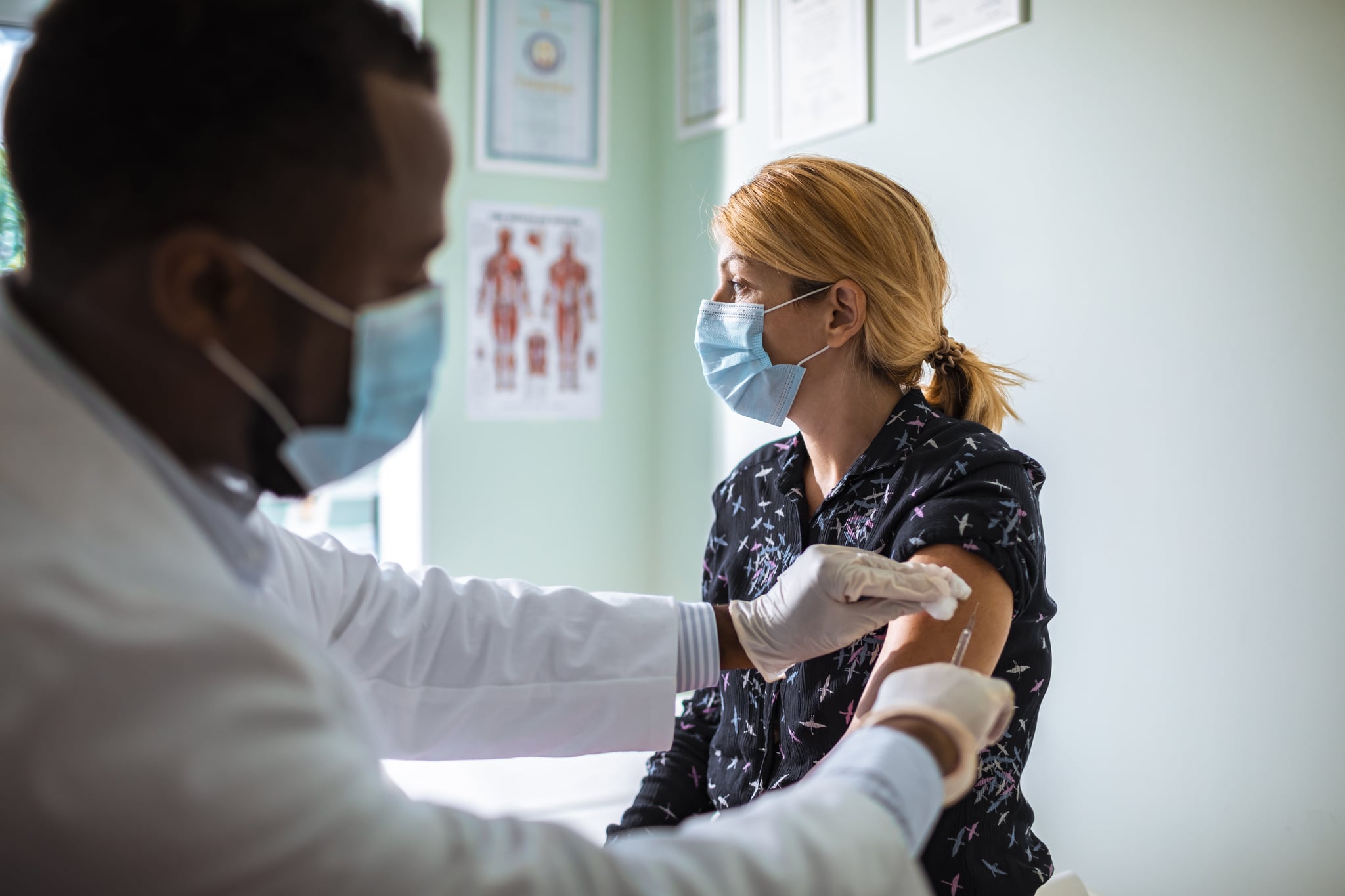Will I Have to Get the COVID-19 Vaccine Every Year?
Will the COVID-19 Vaccine Become Our Next Annual Shot? Here's What Experts Know So Far

Getting the flu shot has become an annual tradition for many of us, providing yearly protection from a virus that has killed an estimated 12,000 to 61,000 Americans every year since 2010, according to the CDC. Yearly shots are the norm for the flu, but for other dangerous diseases, such as measles, just one or two shots can provide lifelong protection. The big question in 2021: where does the COVID-19 vaccine fall? Will one or two doses (Pfizer and Moderna require two shots a few weeks apart) be enough to last for a lifetime, or at least several years? Or will COVID-19 become the "new flu shot," requiring a dose every year?
Will I Need a COVID-19 Vaccine Every Year?
At this point, experts don't know if we'll have to get a coronavirus vaccine every year. It depends on two things: how long immunity lasts and how quickly and effectively the virus can mutate.
How Long Does COVID-19 Immunity Last After Vaccination?
Right now, vaccines appear to trigger a longer-lasting immune response than natural infection, according to Andrew Pavia, MD, an infectious disease specialist at University of Utah Health, in an interview with Rochester First. That means vaccine-conferred immunity "may last longer than a year," he said, "but it's unlikely to be permanent the way two doses of measles vaccine is." Dr. Pavia said it's likely that "at some point" we'll need to receive another COVID-19 vaccine; we don't know how exactly when or how often. There's just not enough data yet to know exactly how long immunity lasts.
However, scientists are already working to answer that question. According to the New York Times, researchers will likely track vaccinated people to see who comes down with COVID-19 even after receiving a vaccination. (Both the Pfizer and Moderna vaccines are over 94 percent effective, meaning that some "breakthrough cases" are possible despite the good numbers.) If vaccinated people start getting sick, "that is a sign of weakening protection and will give researchers clues about how long the vaccine lasts." Scientists will also monitor levels of antibodies and T-cells in the blood of vaccinated people to see if and when another shot is required.
Are COVID-19 Vaccines Effective Against New Strains?
Potential mutations are also a factor in whether we'll need follow-up vaccinations, and we know that SARS-COV-2 (the virus that causes COVID-19) has already started to mutate. While the current vaccines appear to be effective against new strains from the UK and South Africa strains, Dr. Pavia said the virus will likely continue to mutate, potentially making it more resistant to the vaccines we have. (The Pfizer and Moderna vaccines currently appear to be effective against the new strains.)
As the virus continues to mutate, "we're going to have to tweak the vaccine just like we do with the flu vaccine," Dr. Pavia said, but he added that it probably won't be necessary every year.
Even though we've been talking about the COVID-19 vaccine for a year at this point, this is a reminder that we still have a lot to learn about its long-term effectiveness. As research continues to come in, it seems likely that we'll need to get the vaccine again at some point — we're just waiting to find out when. In the meantime, and as the first doses of the COVID-19 make their rounds, it's important to continue doing what we can to protect ourselves and others: washing your hands frequently and for at least 20 seconds, staying away from crowds and indoor events, and wearing a face mask in public.
POPSUGAR aims to give you the most accurate and up-to-date information about the coronavirus, but details and recommendations about this pandemic may have changed since publication. For the latest information on COVID-19, please check out resources from the WHO, CDC, and local public health departments.








